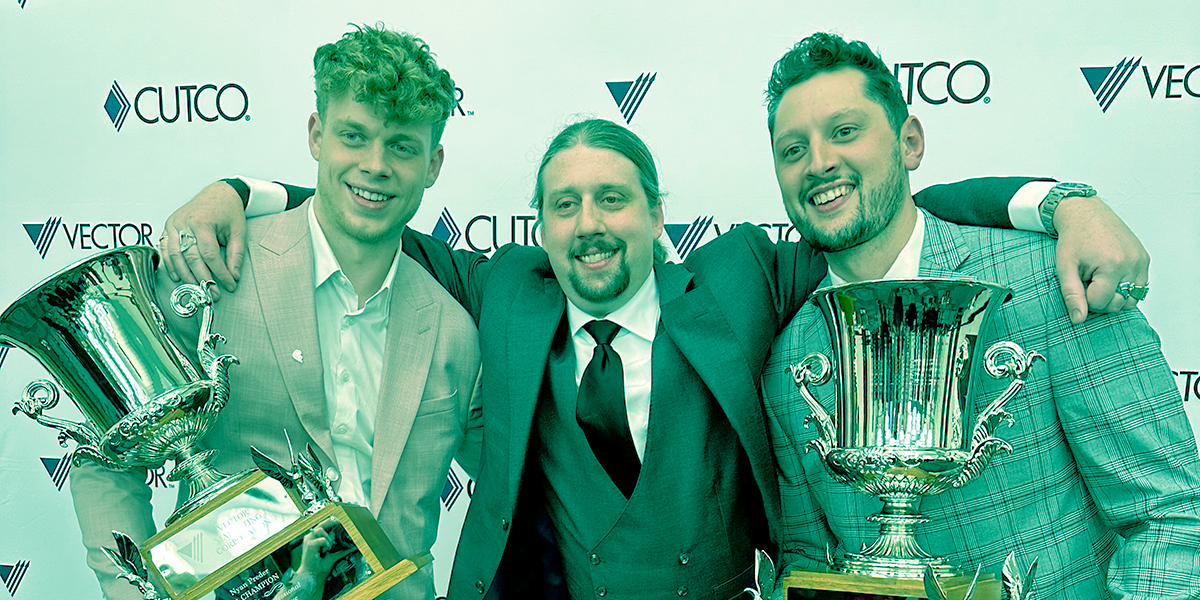
In some ways, life is all about reinventing yourself.
You come into this world and start building an identity based on what you learn from your parents, your friends, and the world around you.
And then as you grow up, you slowly realize that some of the labels you picked up along the way just don’t fit anymore.
From that point forward, you begin reinventing yourself.
And take it from me: It’s not a linear process.
At some point or another in life, I’ve identified myself as a baseball fan, a clarinetist, an ex-pat, a churchgoer, and a caregiver. I’m not any of those things anymore, but they used to define me.
When I let them go, I had to reinvent myself in ways big and small.
If you’re like most people, you’ve already experienced some of the rockiness of reinventing yourself during your teen years. And it doesn’t end there—but that’s not a bad thing.
Reinventing yourself in new and exciting ways is a big part of what makes life worth living.
But it’s also hard. It requires risk and potential failure, and sometimes, that makes it hard to make changes we know are necessary for growth.
If you’re stuck trying to figure out how to reinvent yourself, I’ve got some tips that will make the process easier on your soul and self.
Authenticity vs. performance: Why your motivation matters
Before we get into how to reinvent yourself, let’s make sure that we’re on the same page about what it means to reinvent yourself in healthy ways.
Not all reinvention is created equal.
There’s a huge difference between becoming more authentically yourself and putting on a performance to meet someone else’s (or society’s) expectations.
Let’s break down these two concepts:
Authentic reinvention
This kind of reinvention happens when you realize that parts of your current identity don’t actually reflect who you are underneath.
Maybe you’ve been the “responsible one” in your family since you were 10, but you’re naturally more spontaneous and creative. Or perhaps you’ve been playing the role of the academic high-achiever because that’s what your parents value, but you’ve realized college isn’t for you, and you’re actually drawn to hands-on work or entrepreneurship.
Authentic reinvention feels like relief, even when it’s scary. Instead of “adding layers” to make yourself into someone new, you’re removing labels to uncover what was always there.
Performative reinvention
This happens when you try to become someone you think will be more accepted, successful, or loved. You might adopt a completely new personality because you saw it work for someone else, or overhaul your interests because you think your current ones aren’t cool enough.
Performative reinvention is exhausting because you’re constantly monitoring yourself to stay in character. Deep down, you know it’s not really you, and you’re always worried about being found out.
The key difference is this: authentic reinvention feels scary but right, while performative reinvention feels anxious and uncertain.
For the rest of this article, I will be guiding you toward authentic reinvention—because performative reinvention is usually a waste of time.
How to reinvent yourself: A roadmap
There is no “right way” to reinvent yourself. Every time you do it, it will look and feel unique in some ways—and how you go about reinventing yourself will be different from how others do it.
However, there are a few practical exercises that can help you on your journey, no matter what kind of reinvention you’re going through.
Stay centered on what YOU want
The foundation of authentic reinvention is knowing what you actually want in life—not what your parents want, not what society expects, and not what would make you look good on social media.
This sounds simple, but it’s one of the hardest parts of the entire process. Most of us have spent years absorbing other people’s expectations and making them our own. Your mom’s dream of you becoming a doctor might feel like your dream. Your friend group’s obsession with a certain lifestyle might seem like your natural preference.
The first step is learning to stop caring what other people think. I am not saying you need to become narcissistic and dismissive of other people. Rather, you need to develop the ability to distinguish between your authentic desires and the voices of others in your head.
Start by asking yourself some tough questions:
If nobody would ever know about your decision, what would you choose?
If you didn’t have to worry about disappointing anyone, what path would excite you?
If money and status weren’t factors, how would you want to spend your time?
One framework I find helpful is asking, “What decision would make future me proud?” This cuts through the noise of immediate pressures and social expectations, and helps me focus on my long-term goals.
The aim is to develop enough self-awareness that you can tell the difference between helpful feedback from people who care about you and noise from people or societal pressures projecting onto you.
In your twenties, you’re faced with a lot of important (and overwhelming!) life choices. The more authenticity you can bring to these decisions, the better the outcome will be.
We have guides that can help you center your own needs and wants in these important decisions, including what major to choose in college and articles that can help you pick the right career path:
Embrace the experimentation (and take the pressure off yourself)
Authentic reinvention requires you to try something new. You can’t figure out who you really are by staying in the same patterns and routines that got you where you are now.
This means getting comfortable with not knowing how things will turn out. Maybe you’ll discover that you love rock climbing, or maybe you’ll realize it’s not for you after one session. Both outcomes are valuable information.
Try to approach this experimentation with curiosity rather than pressure. (I often repeat the mantra “curious not anxious” to myself to help trick my brain into switching off my worry.)
The stakes are low—you’re not trying to find your “one true calling” or completely reinvent yourself overnight. You’re just gathering data about what feels authentic to you.
Some experiments will fail spectacularly, and that’s part of the process. The failed attempts teach you just as much as the successes—sometimes more. That creative writing class that bored you to tears? Now you know that’s not your path, and you can cross it off the list.
Remember that comfort is a trap. If you only do things that feel safe and familiar, you’ll never discover new parts of yourself. The most meaningful growth happens when you’re slightly uncomfortable, trying things that challenge your current identity.
Want to try something new? These articles have some great ideas on where to start:
Manage other people’s reactions
This might be the hardest part of reinventing yourself. Just when you’re trying to focus on what you want rather than what others think, people start chiming in with their opinions about your choices.
You’ll get unsolicited advice from acquaintances who barely know you. Well-meaning friends will make comments that set you back weeks in your confidence. Family members will question your decisions or underestimate you, sometimes in ways that feel like personal attacks.
The tricky part is that people’s reactions come from different places, and you need to handle them differently based on their intentions.
Some people react negatively simply because they’re surprised or uncomfortable with change. They’re not trying to hurt you—they just don’t know what to say when you show up with a new haircut, announce you’re changing career paths, or start talking about interests they’ve never heard you mention before. These reactions often say more about their own discomfort with change than about your choices.
Then there are toxic people who see your growth as a threat. They might try to hold you back because your changes make them feel insecure about their own lives. They’ll disguise their criticism as concern or “just being realistic,” but their real motivation is keeping you small.
Some people will actively discourage you from making changes, especially if those changes threaten the dynamic you’ve had with them. If you’ve always been a people pleaser, you may get pushback when you start setting boundaries with family. If you’ve been the “quiet one,” your friends might feel uncomfortable when you start speaking up more.
When you receive feedback from someone, pause to reflect on the intention behind the feedback. Comments from people who genuinely care about your well-being deserve consideration, even if they sting. But criticism rooted in comparison culture or someone else’s personal fears can usually be ignored.
When thinking about how to reinvent yourself, keep the focus squarely on your own wants. It will take time, but if you pause to reflect, you can tune out the noise and focus on what feels right. When you do that, reinventing yourself becomes much easier and more fulfilling. Be true to yourself, and the rest will follow.













